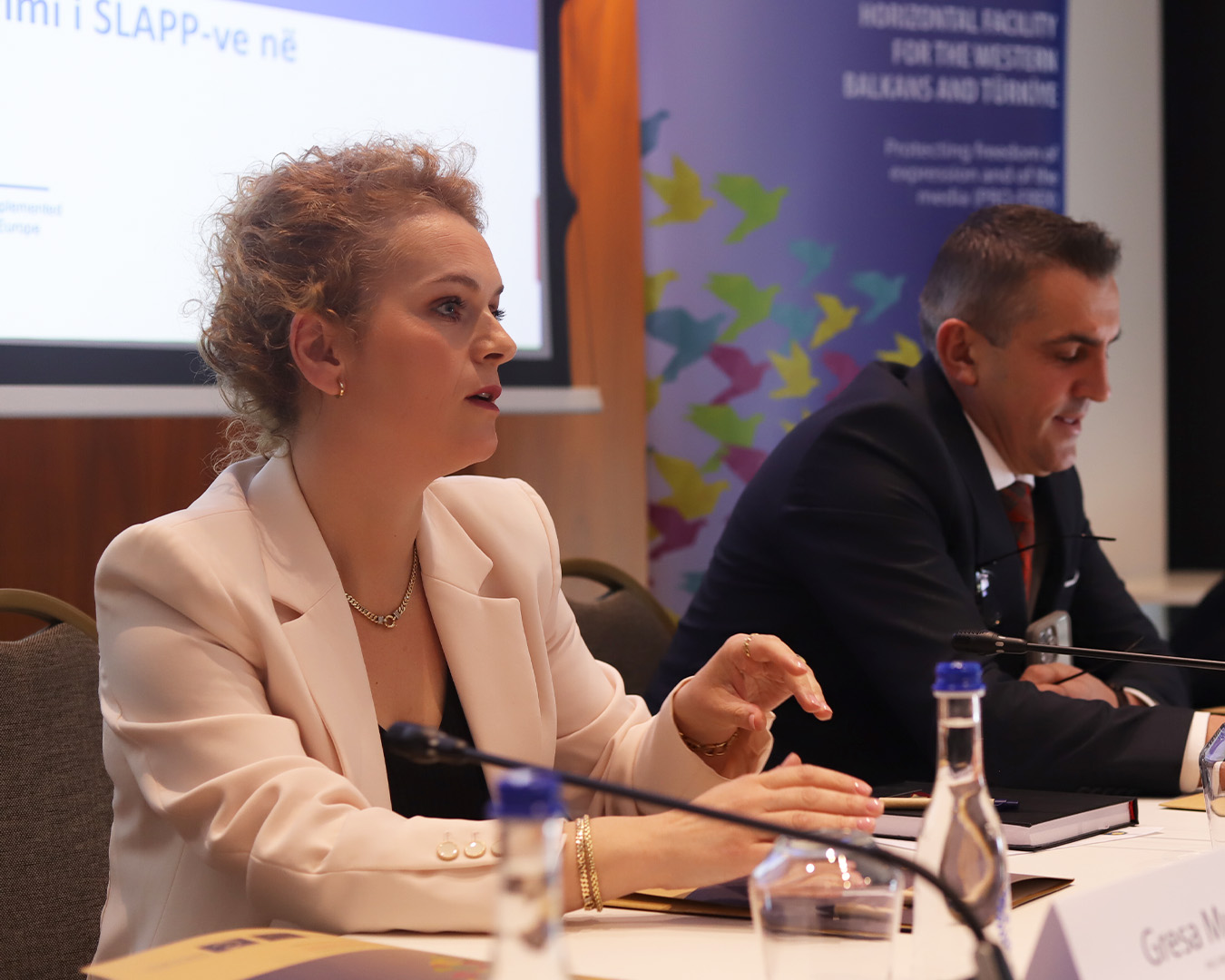Safeguarding media freedom and ensuring the safety of journalists are essential components of a democratic society and the rule of law. Prosecutors play a key role in preventing and responding to threats, violence, and legal harassment targeting media professionals.
To strengthen prosecutorial capacities in these areas, the EU/CoE Action “Protecting Freedom of Expression and of the Media (PROFREX)”, in cooperation with the Basic Prosecution Office of Pristina and the Academy of Justice, held a specialised training session for approximately 20 prosecutors. The initiative responded to a direct institutional request to enhance knowledge and practical skills related to the protection of journalists and the prevention of Strategic Lawsuits Against Public Participation (SLAPPs).
The training offered an in-depth overview of international and European legal standards on freedom of expression, with a focus on the European Convention on Human Rights and the relevant case law of the European Court of Human Rights. Particular attention was given to the role of prosecutors in ensuring the physical and legal safety of journalists, protecting sources and whistleblowers, and effectively addressing threats or acts of intimidation.
Participants also explored the emerging phenomenon of SLAPPs, as abusive legal actions aimed at silencing public interest reporting and discussed how to identify and address such cases in practice. The Council of Europe’s recent work in this field, including the Council of Europe Committee of Ministers’ Recommendation CM/Rec(2024)2, the Directive (EU) 2024/1069 of the European Parliament and campaigns such as Journalism Matters, were presented and discussed.
By the end of the session, prosecutors had gained concrete tools to apply international standards in domestic proceedings and better respond to violations against media actors.
The action “Protecting freedom of expression and of the media (PROFREX)”, implemented by the Division for Cooperation on Freedom of Expression of the Council of Europe, is part of the joint European Union and the Council of Europe programme “Horizontal Facility for the Western Balkans and Türkiye”.







